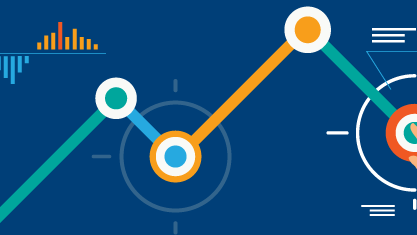The world of PPC and online advertising has opened up the opportunity for even the smallest of businesses and enterprises to generate huge exposure amongst relevant potential customers. Unlike the much more traditional media & advertising channels, renowned platforms such as Google, Microsoft & Facebook have made it possible to promote your much sought-after products and services to the users who are actively interested and searching for them.
However, one caveat to unlocking the full potential of these numerous online advertising giants is conversion tracking. Accurate tracking of your website or app is ESSENTIAL. Whether you have a lead generation or eCommerce business, advertising without effective tracking tags set up on your site is like playing darts with a blindfold on – you will never know if you hit the target.
There is no arguing that setting up correct conversion tracking for your PPC advertising is one of the more mundane and tricky tasks. With an abundance of variables to consider, such as business type (online store/lead generation), website platform (Magento, Shopfiy, WordPress etc.) and much more, it is a landscape full of pitfalls. Luckily the PPC & SEO teams at Global Search Marketing are well-versed in almost every tracking setup scenario you can throw at them.
The importance of accurate conversion tracking stretches far beyond simply having visibility on how many sales you received or how many contact forms were completed on your site. It provides crucial insight into user behaviour which can inform your entire PPC advertising strategy across many different aspects of an account:
Granular Reporting
Correctly implemented tracking unlocks vital metrics within the dashboards of PPC channels like Google & Bing. Metrics such as “Conversions”, “Conversion Value/Revenue”, “Cost Per Acquisition/CPA” can all be measured against some of the most granular levels of each platform’s reporting interfaces. This means that PPC advertisers can view the amount of transactions, leads, revenue, ROI and cost-per-conversion at even the search query level. This level of granularity allows users to analyse and optimise accounts based on conversion performance of keywords, extensions, ad creative variations, audiences, devices and much more.
Budgeting & Forecasting
With the ability to gauge conversion and revenue volumes, advertisers simply know whether a campaign is effective or not in achieving their goals. This confidence of a campaign or account’s effectiveness in hitting target KPIs gives you the necessary insight to make informed decisions on your PPC ad spend and budgets. Without tracking, it would be far more difficult to attribute sales and leads back to your advertising. However, knowing what level of conversions you are receiving for your costs means that you are able to scale budgets up and down to either cut back on poor performing campaigns or maximise on those that yield strong results.
Not only this, but by implementing accurate tracking across both lead generation and ecommerce businesses, an advertiser can build vast amounts of historic data which can be utilised to identify seasonal and promotional performance patterns – allowing for the creation of proactive budget strategies.
Lead Generation & Cost Per Acquisition (CPA)
For service-based companies, effective lead tracking is a prerequisite for understanding the true value of their PPC advertising efforts. Not only is it possible to measure how many leads were generated through your ad spend but you are able to segment these conversions into separate conversion actions including: contact form submissions, appointment bookings, live chat interactions, website phone number calls, email link clicks, newsletter subscriptions and more.
With all of these collated into the conversion column of a PPC platform such as Google Ads, Microsoft Ads or Facebook Ads, lead generation businesses can calculate the cost of each lead (CPA) and apply their internal business costs to dictate whether these leads are profitable.
eCommerce & ROAS
Setting up conversion tracking as an eCommerce business goes a step further by introducing revenue values into the reporting metrics of PPC platforms. At the simplest level, this allows an advertiser to pull in an overall monetary value of their promotional campaigns and gauge whether it was a profitable exercise. This metric is Return-On-Ad-Spend or ROAS and essentially informs users how much they received back for their advertising investment.
At a more granular level, you are able to use revenue, ROAS and other value-based metrics to measure which individual products may sell better online and which do not. This not only ties nicely into both the budgeting and seasonality planning topics covered above but also aids advertisers with evaluating the success of promotions and sales affecting unique products at the search query level of an account.
Although this barely scrapes the tip of the iceberg for demonstrating the value of accurate conversion tracking to PPC advertisers, its importance will only continue escalating. With the introduction of Smart Bidding Strategies from Google and Bing, and Smart Campaign Objectives from the likes of Facebook, conversion tracking is slowly becoming an absolute requirement should users want to take full advantage of the automated, machine-learning systems that are boosting performance and driving even more value from PPC campaigns and accounts.
Enquire with the Global Search Marketing to discuss any conversion tracking requirements you may have.

